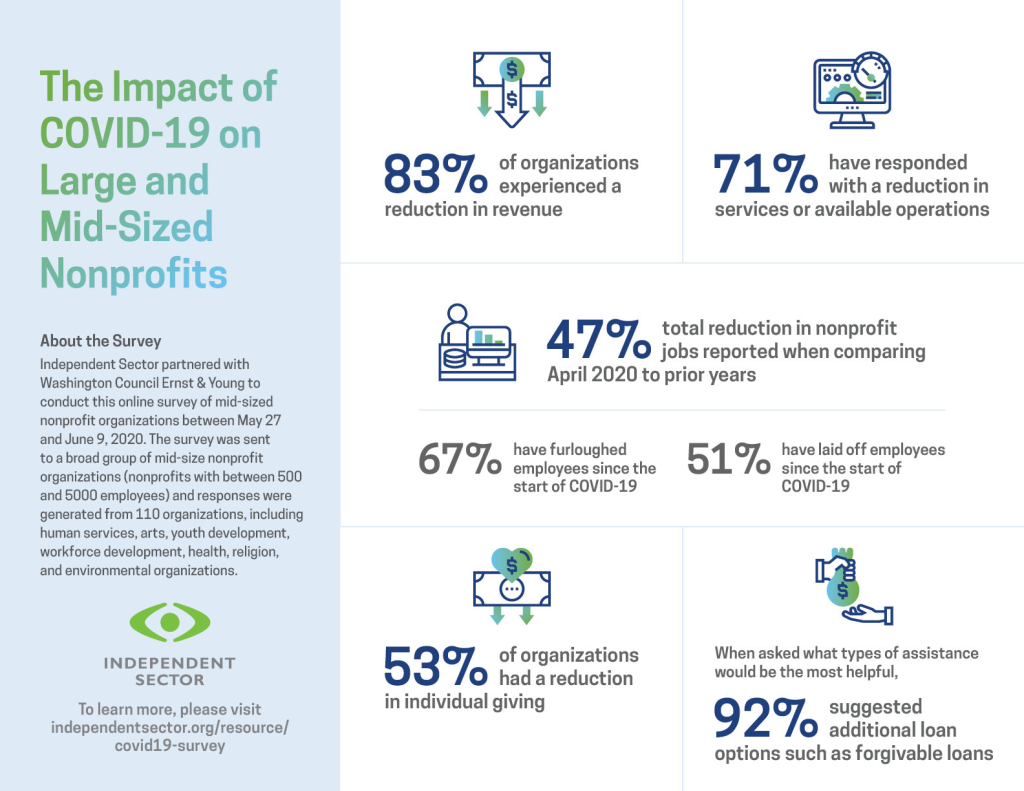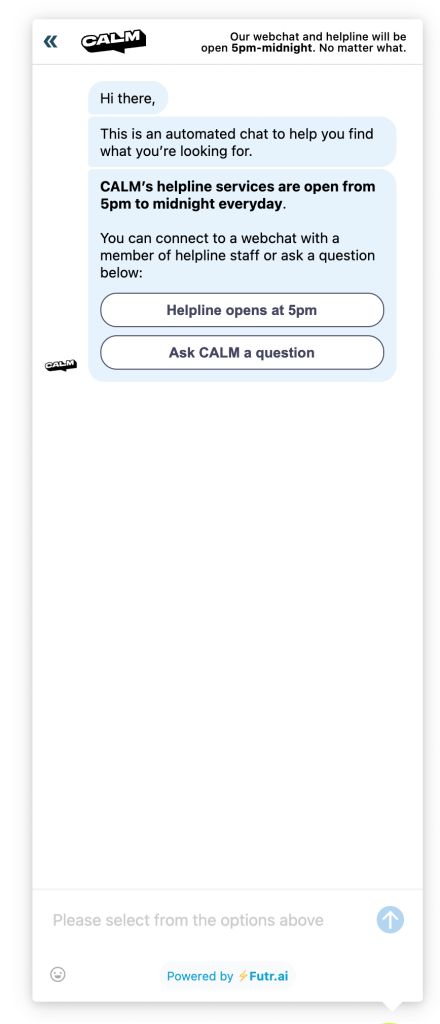3 Practical AI and Automation Tools Charities Should Use
The COVID-19 pandemic has accelerated the digital transformation of nonprofits and charities. As lockdowns and social distancing guidelines all but prevented volunteers and charity workers from engaging donors and community members, aid groups and charity organisations found themselves unable to do their best work and raise funds through face-to-face interactions.
According to the Nonprofit Leadership Center, fundraising was the biggest challenge for nonprofits and charities six months into the pandemic. This aligns with a separate survey by the Independent Sector, a group of nonprofits, foundations and corporate giving programmes, which found that 83% of charities saw their revenues decline between May and June 2020.

Source: Independent Sector
But it’s not been all bad news.
Despite furloughs and tough economic conditions at the height of COVID-19, one in five UK adults said they would donate more than usual to charities. In fact, as the pandemic rolled on, many people still showed their financial support to charities and nonprofits — but it’s the how that changed dramatically.
Research by Blackbaud shows that 60% of charities turned to digital or virtual fundraising during the pandemic. Of that number, three in four organisations did it for the first time.
This shift in giving behaviour reflects the broader acceleration of digital transformation in charities and nonprofits. These changes, in turn, create opportunities for new artificial intelligence (AI) powered tools and software to transform how charities raise funds, engage donors and beneficiaries, and market themselves. Here’s a look at some of them.
1. Chatbots: Enabling Self-Service
Chatbots for charities are an ideal solution for automatically engaging donors, volunteers, employees and beneficiaries at scale — all without requiring human intervention. They enable a user experience (UX) feature known as self-service or self-serve, which, as the term suggests, refers to online users taking control of their experience.
Chatbots are particularly adept at answering frequently asked questions using natural language processing and AI. In the context of charities, these questions can include:
- What does your charity do?
- How can I donate to your cause?
- How much can I donate to your charity?
- Where can I find more information about your charity?
Chatbots can even assist with core service delivery. The Campaign Against Living Miserably (CALM), a suicide prevention charity, uses chatbots to ensure that anyone needing help can speak with someone and get support at any time of the day.

CALM’s AI Chatbot
2. Payment Software: Enable Cashless Fundraising
Social distancing and concerns about sanitation and hygiene during the height of the pandemic naturally led to a decline in cash donations — typically the most popular way to give to charity in the UK. According to Charities Aid Foundation, cash donations plummeted by 34% in March; cashless donations through apps and websites, on the other hand, rose by 11% in the same period.
There are different ways of donating to charities online, such as through platforms like GoFundMe and JustGiving. But you can also enable cashless donations through chatbots, creating a more streamlined giving experience that takes donors from the awareness stage (asking questions about the charity, what it does and why) to the donation stage (processing payments) within the conversation itself.
3. CRM Software: Get Full Visibility of Your Donors and Campaigns
Customer relationship management (CRM) solutions are typically associated with for-profit businesses, automating many sales and marketing processes. However, they can also be powerful tools for charities and nonprofits.
But instead of thinking about customers, think of the “C” in CRM as constituents. For many charities, these constituents are:
- Donors
- Members
- Volunteers
- Alumni
- Students
- Media partners
- Suppliers and vendors
- Corporate partners.
CRM software allows charities to get full visibility of their supporters, members, donation records, donation history of individual donors and performance of their marketing campaigns.
Best of all, CRM solutions automate many tasks, such as sending reminders and notifications, freeing your workers and volunteers from routine and repetitive tasks like making phone calls and sending emails.
Pro Tip: be sure to inquire about discounts and promotions when choosing CRM software. Many providers have special offers and discounts for charities and nonprofits.

